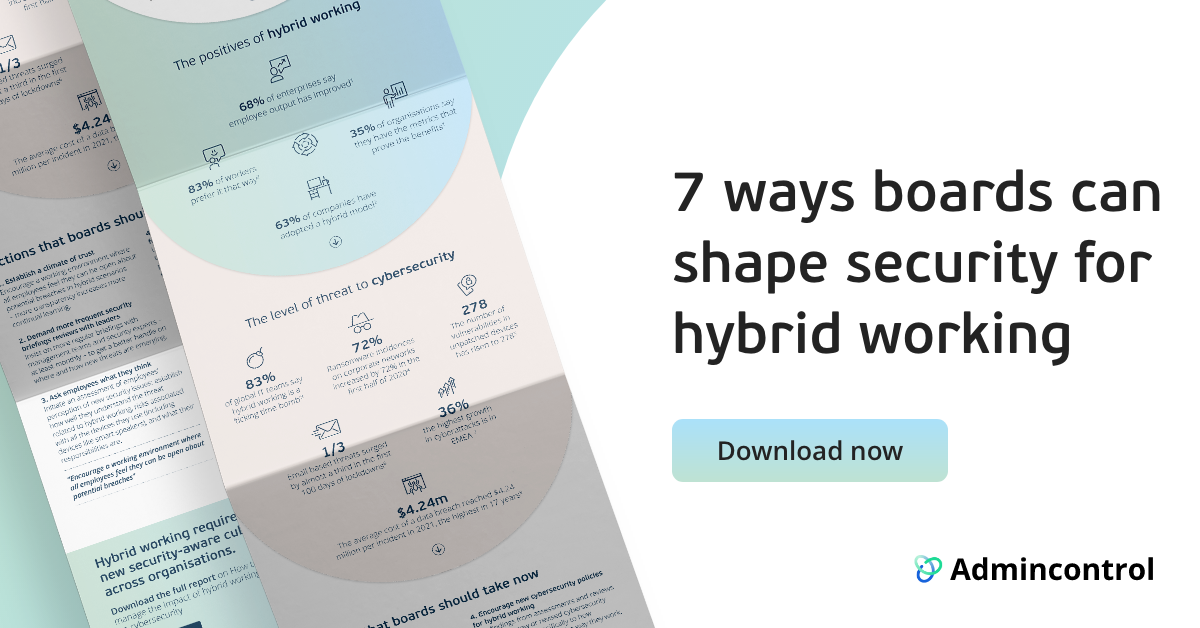
A few years ago, we got another reminder of how real the danger is, when it became apparent that the world had suffered another major cyberattack. The attack exploited vulnerabilities in Microsoft Exchange, affecting many different enterprises (including Norway’s Parliament and 30,000 organisations in the US).
“This was an attack with a global reach, that has hit a large number of targets. If you don’t have proper security systems in place, you are much more vulnerable to external cyberattack. In today’s world, all companies should be taking security seriously,” says Møyfrid Øygard, Admincontrol’s Managing Director.
She stresses that the threat picture is constantly evolving and escalating in complexity.
“In general, phishing and spying by state actors have become more frequent in recent years. Other challenges include clientside security, meaning primarily data on mobile devices. Although smartphones and tablets have streamlined communication, they have also increased security risks and raised concerns about personal privacy and data protection,” she asserts.
Major consequences for companies
Gartner, the research and advisory company, also highlights increased digitalisation as a source of greater risk to organisations going forward.
According to their Board of Directors Survey, companies rank cybersecurity risk as second in magnitude, trailing only regulatory risk.
Other consultancy giants like PwC and KPMG note how home offices can weaken a company’s cybersecurity, and that, moving forward, organisations will need to scrutinise how this new, more technology-dependent, way of working impacts risk.
“Since the outbreak of the Covid-19 pandemic, working from home has become the ‘new normal’ for millions of people around the world. Cybercriminals are taking advantage of the situation, and it is more important than ever to be security-aware,” says Øygard.
She points out that sensitive corporate data going astray can have disastrous consequences.
“The loss of data or data-access control can paralyse a company completely and destroy its good name and reputation, which is why we encourage everyone to store sensitive documents in a secure and robust cloud solution. It’s easy to imagine that ‘this won’t happen to me’, but you can simply never be 100% certain.”
At Admincontrol, we believe that the only way to ward off cyberattacks is to develop a strong security culture within the company, which means of course having the right digital systems in place to shield the company from future attacks.
Secure solutions from Admincontrol
Øygard emphasises that Admincontrol’s solution helps to make interaction processes more secure.
The idea is that anything relating to board work or due diligence activities should take place within a system to which no one else has access.
After logging in, the board members or the stakeholders in a due diligence process can collaborate and communicate in a completely secure manner inside the board portal or data room.
“Our solution supports international board work and transnational M&A processes, with login and authentication routines that comply with international standards. It is this combination of extremely high security and excellent user functionality that has made our solution so popular and given us an annual renewal rate of 98% among our board portal clients,” concludes Øygard.
If you want to find out more about other ways you increase security, you may also be interested in our handbook on how to manage the impact of hybrid working on cybersecurity:



